Do you think it is important for the UK to cut down on plastic bag use? What are the best methods of doing so? We ask Labs panellists for their views
According to the European Commission, 800,000 tonnes of single-use plastic bags are used every year in the European Union. The average citizen used 191 of them in 2010, and only 6% were recycled. More than four billion bags are thrown away each year in Europe.
Indeed, the on-going problems associated with disposable plastic bags have prompted councils to find ways of getting shoppers to cut down.
Last year, Wales introduced a compulsory 5p charge for single-use carrier bags in all shops; Northern Ireland is bringing in a similar proposal next year; while in England, charging is currently at the discretion of individual retailers, such as Marks & Spencer’s, which already charges for bags.
Despite such moves, however, the BBC reports that the use of carrier bags in the UK actually rose by 5% in 2010, after 4 years of continuous decline.
In our poll on the subject, almost all participants who answered said that cutting down our usage of plastic bags is important.
Reasons cited include concerns about their environmental impact and the resources used to make them.
Participants also suggested ways in which the UK could reduce plastic bag usage in shops, while others offered tips for cutting down at home.

Do you think it's important to cut down on plastic bag use? What would you suggest, if anything, to help? Do you have any tips for shoppers on cutting down?
Join the debate in the comments below

Here's what our poll participants had to say...
Cutting down on plastic bags: Participants' suggestions
Option 1: A complete ban on plastic bags
Some countries have introduced either a complete or partial ban on plastic bags, forcing shoppers to think ahead. Italy, for example, banned the use of non-biodegradable bags last year, whilst Rwanda has implemented a complete ban.
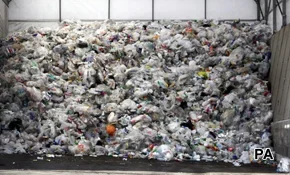
What our participants said:
“If plastic bags are not available, then people will adapt and use alternatives, i.e. bags for life etc. Most people are quite happy to change when left with no option” Elizabeth, Nottinghamshire
“Unless plastic bags are banned completely (except where no reasonable alternative is possible) they will continue to collect in the environment posing a number of threats to our lives and particularly to wildlife” Ken, Taunton
“All the other ideas have merit, but the underlying issue is about stopping the production and consumption cycle generally” Chris, Surrey
Option 2: A tax on plastic bags
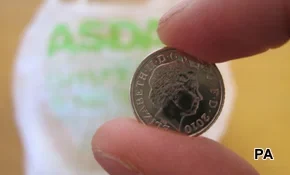
This is a popular option in many countries, led by Ireland in 2002, which introduced a blanket charge of 15 euro cents a bag. In the first year, this initiative reduced plastic bag use substantially and was quickly picked up in Belgium, The Netherlands, Spain and Germany.
What our participants said:
“If shoppers had to pay extra for the bags they would think twice before using them” Anon
“Plastic bags are often handed out without the customer requesting them. If either the customer or the retailer had to pay at least 10p per bag, usage would be greatly reduced” Anon
“It has worked in other countries and would achieve other goals such as encouraging reuse and introduction of biodegradable alternatives, whilst raising funds to support green projects” Lee W, South Shields
Option 3: Using 'long-life'/re-usable bags
Reusable bags are now available in many shops, and are a popular alternative to plastic bags. However, their environmental benefits have recently been called into question.
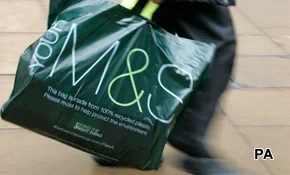
According to a study by the Environment Agency, a plastic ‘bag for life’ must be used four times to compensate for the larger amount of carbon used in manufacturing and transporting it, and a cotton bag must be used 131 times! However, they remain a popular choice, and many of our participants said they had been using the same bags for years, proving that this can be an environmentally friendly option.
What our participants said:
“Long-life bags tend not to be left as litter, which plastic and even bio-degradable bags are. They are larger, so you need fewer of them” Derek, H. Guildford
“People are more likely to use them, particularly if they're attractive. A tax would annoy people and a complete ban is impractical - even the most environmentally conscious of us occasionally forget to take a bag when we go shopping!” Anon
“I work in a shop and lots of folk bring their own bags in now. I think it's down to education rather than a tax which would be hard to implement” Kate, Scotland
Option 4: Providing biodegradable bags in shops
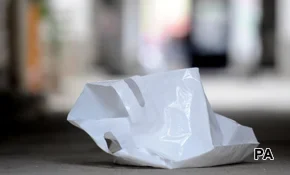
This is a gradual option to cut down on pollution without implementing difficult policies, or expecting people to change their behaviour dramatically. It can be used as a short-term measure, allowing people to adapt more sustainable behaviour whilst providing convenience and lessening the burden on the environment.
What our participants said:
“People will still continue to use them regardless, so it is better to use bags that are less damaging to the environment” Anon
“We as a nation are too dependent on plastic bags and although I would prefer to ban them [I don't think] that is not practical in the short term” Nonna, London
“All bags get thrown away eventually ‒ so let’s make sure they do as little damage as possible” Anon
Option 5: Using paper bags
These are traditionally used in the US, and can easily degrade in landfill. However, they do have a higher carbon footprint than plastic bags, and tend to be re-used less often. A few of our participants also mentioned the perhaps very British concern over how quickly paper bags disintegrate in the rain!
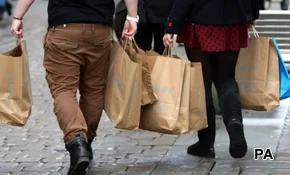
What our participants said:
“They are biodegradable and other countries have used them for years” Lippy, North-East
“Paper bags are better in terms of resources and degradability. Re-use bags tend to be forgotten and left at home or in the car boot. Biodegradable plastic bags are weak and messy if left in a cupboard” Anon
“They are made from manageable sources, and could be made of recycled paper” Anon
Option 6: It is not important to cut down on plastic bags
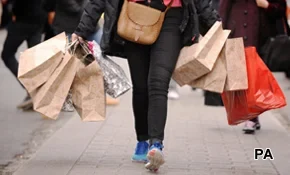
“Plastic bags are a tiny part of the overall litter problem. As long as they are reused and recycled then plastic bags are useful and necessary” Carol F, Yorkshire
“Plastic bags have more uses than are generally mentioned, e.g. wrapping up rubbish” H Walker, Pimlico
“Whatever we do , the rest of the world will continue to use them, it’s a futile hassle” Anon
“In the grand scheme of things, there are more important things to worry about” Anon
“When I go shopping I expect to be given something to take my goods home in” Anon
Finding it hard to go without plastic bags? Try these tips
“I have bags in the car for large shopping and carry one in my handbag for everyday use. I always refuse a bag when shopping- it can become a habit quite easily” Hilda, Yorkshire
“I have bag free deliveries made to the house by supermarkets [that don't pack shopping in plastic bags]” Jan L, Horncastle
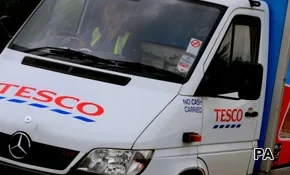
“I use my own jute reusable bags or cardboard boxes that are left at the end of checkouts in superstores” Anon
“Combine shopping from different shops when using disposable bags” Anon
“When buying small quantities in super-markets I refuse the offer of a "free" bag and carry the items by hand” Ian, Cornwall
“Always bring a backpack to do weekly shop. Tie a bag to the door handle to remind me to bring one with me when leaving the house” Anon
Do you think it's important to cut down on plastic bag use? What would you suggest, if anything, to help? Do you have any tips for shoppers on cutting down?
Join the debate in the comments below

Follow and discuss: @YouGovLabs on Twitter






